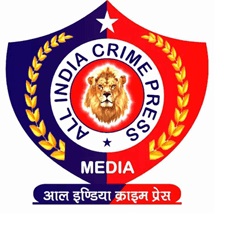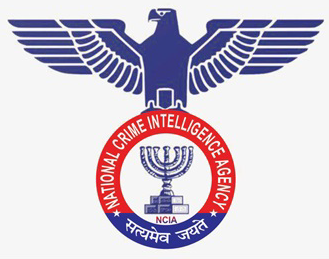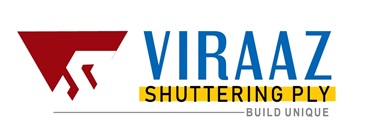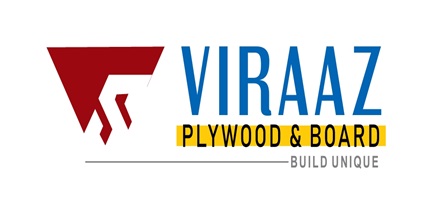Litigation & Pre-Litigation of Income Tax
Civil litigation, Criminal Litigation, Commercial Litigation, Arbitration Proceedings, Intellectual Property Rights Litigation, Personal & Family Litigation, Income Tax Litigation, GST Litigation, Company Law Litigation, Consumer Case Litigation, Mediation & Conciliation.
3000 +
Happy clients
300 +
Advocate, CA, CS
10 +
Associates Offices
Request A Call Back
Litigation & Pre-Litigation of Income Tax
The Indian Constitution has empowered only the Central Government to levy and collect income taxes. The Ministry of Finance (Department of Revenue) through the Central Board of Direct Tax (CBDT), an apex tax authority, implements and administers direct tax laws. CBDT is a large organization with commissioners in charge of specified areas assisted by deputy commissioners and officers, who issue assessment orders and collect taxes.
Assessment
All taxpayers are required to file a Return of Income on or before specified dates each year. The Assessing Officer (AO) examines the return of income filed by the taxpayers and frames the assessment by applying the provisions under Income Tax. The Income Tax Act and the general principles of natural justice mandate that the AO gives the taxpayer adequate opportunity of being heard in case the taxpayer disagrees with the quantum of income and tax declared by him or certain positions adopted in the return of income. During the assessment, where the taxpayer is expected to provide necessary clarifications to the AO, the points of dispute or potential disputes are averted through explanations and clarifications. The AO can serve the notice in case of understatement of income or underpayment of tax for hearing for regular assessment/limited scrutiny assessment within 6 months from the end of the financial year in which return is furnished. The Assessment Officer requires to issue the order within 1 year from the end of the financial year in which return is furnished.
Appeal to Commissioner
Any taxpayer aggrieved by an order of Assessing Officer can file an appeal before the Commissioner of Income Tax (Appeal).
Documentation: The taxpayer is required to submit the following documents before the Commissioner of Income Tax:-
- Prescribed form (including Statement of Facts and Grounds of Appeal)
- One certified copy of the order, appealed against
- Notice of demand in original
- Copy of challans of fees.
Time Limit
The taxpayer is required to submit within 30 days from the date of service of notice of demand relating to assessment or penalty order. The Commissioner (Appeals) may admit an appeal after the expiration of the period of 30 days if he is satisfied that there was sufficient cause for not presenting the appeal within 30 days.
Appeal Decision
After the hearing is concluded, Commissioner (Appeals) passes an order in writing, disposing of the appeal and stating the decision on each ground of appeal with reasons within one year from the end of the financial year in which appeal is filed (where it is possible). In case of assessment and penalty, Commissioner (Appeals) may confirm, reduce or enhance it.
Income Tax Appellate Tribunal: Any taxpayer aggrieved by an order of Commissioner can file an appeal before the Income Tax Appellate Tribunal (ITAT).
Documentation: The taxpayer is required to submit the following documents before the Income Tax Tribunal:-
- Prescribed form in triplicate (including Statement of Facts and Grounds of Appeal)
- One certified copy of the order, appealed against
- Ground of appeal before the first appellate
- Statement of facts filed before the first appellate authority
- Copy of the assessment order
- Copy of challan for fee payment
Time Limit
Appeal to ITAT is to be filed within 60 days from the date on which the order sought to be appealed against. The ITAT may admit an appeal even after 60 days if it is satisfied that there was sufficient cause for not presenting the appeal within the prescribed time.
Appeal Decision
After the hearing is concluded, Income Tax Appellate Tribunal passes an order in writing, disposing of the appeal and stating the decision on each ground of appeal with reasons within 4 years from the end of the financial year in which appeal is filed (where it is possible).
Appeal to High Court
Appeal against Appellate Tribunal’s order lies with the High Court, where the High Court is satisfied that the case involves a substantial question of law. Appeal to the High Court against Appellate Tribunal’s order can be filed by the taxpayer or the Chief Commissioner/Commissioner within 120 days of receipt of the order and in the form of a memorandum of appeal, precisely stating the substantial question of law involved.
Appeal to Supreme Court
Appeal against High Court’s order in respect of Appellate Tribunal’s order lies with the Supreme Court in those cases which are certified to be fit one for an appeal to the Supreme Court. Special leave can also be granted by the Supreme Court under Article 136 of the constitution of India against the order of the High Court, Alternate Dispute Resolution Mechanism Advance Authority Ruling (AAR):-
To facilitate certainty regarding taxation, a non-resident can approach the Authority for Advance Rulings (AAR) to determine the income tax liability of any proposed or current transaction. An advance ruling can also be sought by a resident to determine the tax liability of a non-resident with whom a transaction has been undertaken or is proposed to be undertaken.
Specified resident taxpayers can obtain an advance ruling in respect of their income tax liability arising out of a transaction undertaken or proposed to be undertaken with other residents. The class of residents eligible for obtaining an advance ruling is yet to be notified by the Central Government.
Such an advance ruling will be binding on the person seeking it about the transaction, and the income-tax department cannot disregard the ruling unless there is a change in the facts or laws affecting it.
Dispute Resolution Panel (DRP)
The DRP consists of a collegium of three CITs or Director of Income-tax (DIT) appointed by the CBDT. The CIT or DIT, in addition to their regular administrative duties, carry out the functions of the DRP. The DRP has the mandate to guide the Assessing Officer (AO) in deciding cases where the addition involves Transfer Pricing (TP) or cases of foreign companies. The AO passes a draft order and within a month, the taxpayer has to either approach the DRP or inform the AO that the draft order is acceptable as final.
In case of the latter, the taxpayer can approach the CIT (A). In case of the former, the taxpayer disputes the draft order before the DRP and the DRP has to decide within nine months whether the AO’s draft order is fine or whether it needs to be amended.
The AO passes a final order based on the directions of the DRP. The taxpayer may further dispute such final order before the ITAT. By a recent amendment, the revenue department has also been given the power to dispute such orders before the ITAT.
We provide our services in the areas of Direct Taxes, Indirect Taxes and International Trade. The services are detailed as below:
We are one of the leading taxation law firms in India. We, at Preach Law LLP provide assistance and comprehensive advice on Indirect Taxes viz., Customs Duty, Excise Duty, Sales Tax/Value Added Tax, Entry Tax, Service Tax, etc. We advise our clients in matters of taxation laws and add value to their business and transactions. Our tax attorneys and consultants have a great deal of experience in varied range of tax issues, from complicated cross-border transactions to tax exemption qualification
Direct Taxes
International Taxation – Double Taxation Avoidance, Inbound Investments, Planning of Intellectual Property Rights etc.
Expatriate Taxation
Understanding the Indian Tax System, Consultancy before or after arrival in India, Consultancy when you are leaving India, other matters requiring consideration, etc.
Corporate Taxation
ICDS Compliance, protection under Double Taxation Avoidance Agreement, Taxation under Startup, Filing Return, etc.
Transfer Pricing
Consultancy with regards to Applicability & Regulation compliances, TP Study report, TP Appeals, etc.
Indirect Taxes
Customs – FEMA, Import Compliances, Exemptions, Custom Valuation, etc.
Service Tax
Consultancy regarding Applicability, registration, periodical compliances, Preventive Matters, etc.
Value Added Tax (VAT) & CST
Opinion on applicability, registration, periodical compliances, Annual Assessment, Audit, etc.
Excise
Applicability, registration, periodical compliances, Legal compliances, Audit, etc.
Goods and Services Tax (GST) – Impact Analysis of GST, Due Diligence, Sector Specific Structuring, etc.
International Trade and Measures:
- Anti-Dumping
- Countervailing
Preach Law LLP also provides taxation advisory, compliance, and services related to:
- Transaction Structuring
- Compliance Management Solutions
- Validation of Tax Computations
- Tax Advocacy
- Contractual Negotiations
Our services
Preach Law LLP representing its client before Government Taxation Authorities, Appellate Authorities, High Courts, Supreme Court of India, and other Tribunals. Firm also represent our clients before the Director General of Foreign Trade, Department of Revenue, Central Board of Commissioner of Excise and Customs and other appropriate authorities. The team advises and assists clients on:
Double Taxation Avoidance Treaties (DTAA), tax holidays available to 100% Export Oriented Units, Special Economic Zones (SEZ), and Foreign Trade Zone (FTZ).
Tax aspects of commercial transactions, sales, mergers and acquisitions, restructuring and reconstruction.
Offshore tax issues, Value Added Tax (VAT), service tax, Customs procedures, import, and export levies, valuation planning, classification, warehousing, duty entitlements etc.
Wide range of issues relating to Service tax on cross-border transactions.
Documentation relating joint ventures, mergers, asset purchase agreements, shareholder’s agreements, and documents relating to financing and employment.
Entry tax, excise duty implications, and CENVAT.
Foreign companies seeking to distribute their products in India to ascertain customs, countervailing, and other duties applicable on their products.
Transfer Pricing, Advance Tax Rulings in respect of a Transaction
Litigations with regard to excise, customs, service tax, sales tax.















































